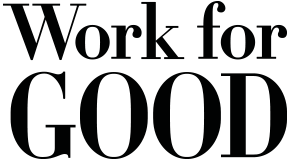5 fundamental truths about resumes
Jenny Foss is a career strategist, recruiter, and the voice behind the popular career website, JobJenny.com, which offers advice and services for navigating job search and career transition.
Let's get it out there: Crafting a killer resume is hard. For many people, it's insanely hard. (This, by the way, is why the entire professional resume writing industry exists.)
At JobJenny.com, we've worked with PhDs, MBAs, CEOs, PMPs, RNs, BSs, and just about every acronym in between. We’ve worked with Olympians, Fulbright Scholars, and front-line service providers who haul ass every day to make big things happen. And for each of these people, when it comes to writing a resume, the same thing happens: They get stuck.
So why, exactly, are resumes so hard?
First, because many people don’t understand how their resumes are reviewed: by both automated scanning software, and by hiring managers or recruiters. Second? Because most people cringe when it comes to writing about their talents and strengths. We're taught to be humble, share credit, and not over-toot our own horns.
So how can you put your best foot forward when you sit down to construct or revise your resume? Start by fully digesting these five fundamental truths:
1. It's a marketing document, not an autobiography.
Your resume isn’t your life’s history: It’s not a list of every stinking thing you’ve done since your first job. It’s a marketing document meant to entice a certain audience to make a purchase decision. In this case, the “purchase decision” is inviting you in for an interview.
2. It’s about them, not you.
It might sound harsh, but it’s true: The hiring manager doesn’t care what you want out of this deal—at least not at first.
Businesses hire new employees because they need someone to help them make more impact, or fix something that’s broken, or grow into new markets, or to make their work easier. They aren’t hiring you because they want to help you fulfill your dreams, or afford a vacation in Cabo, or even pay the rent. Their intention is to satisfy a specific business need.
Certainly they will care, once they see how valuable you are. But at the front end, you need to keep your resume (and your cover letter) focused squarely on what you can deliver as soon as you walk through the doors of your next employer.
3. It needs to be strategic, but not (blatantly) inaccurate.
Most of us have accumulated career “blips and bloops” somewhere along the way: jobs we wish we hadn’t taken, gaps we’re not sure how to deal with, degrees we didn’t quite finish.
Issues of any size need to be considered and strategized over as you develop a new resume—but strategizing isn’t the same thing as flat-out lying or denying reality. No matter the circumstance, you cannot fabricate material on your resume. If you do, you may lose out on a job that was about to be yours—or even fired, if it’s discovered after you landed the job.
4. You can be professional without being stuffy.
Somewhere along the way, life trains us to write resumes in this terse, dull, and overdone style that, in a lot of instances, says very little about our true talents. You may very well be a “detail-oriented professional” who “thinks outside of the box” and has a “proven track record of success,” but those phrases say very little about your true talents.
In most instances, you really can drop the pretention. It’s OK to find different, compelling, conversational—yet completely on-point—ways to spell out what you’re best known for, most proud of, and can deliver on as soon as you walk through the doors. In fact, it’s more than OK—different, compelling, and conversational is what stands out in a sea of same-sounding, say-nothing resumes.
5. Each word should earn its spot.
When you err on the side of brevity because, say, you’re trying to keep your resume to one page—and you’ve got more than a page-worth of experience—the decision-maker can’t figure out why you make perfect sense for the role. Likewise, when you babble on, or provide way too much information, you make it hard for the reviewer to quickly see how and why you’re a solid match.
The magic of a great resume is that it says what it needs to, without being too brief or too wordy. Your goal: Say what you need to say, but make every word earn its spot.
Certainly, there are other ways to fine-tune your resume so that it emerges as an on-point and powerful tool for landing your next job, but these five fundamentals will help you stay focused and create a resume you're truly proud of.
Interested in more in-depth guidance? Try JobJenny’s Weekend Resume Makeover e-course, created to help anyone who wants to quickly develop or update a resume. Even better: Use the code WFGVIP, and you’ll get a $25 discount.
A version of this article originally appeared on JobJenny.com.



